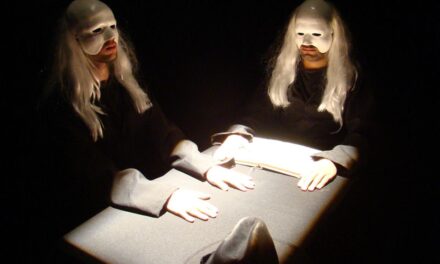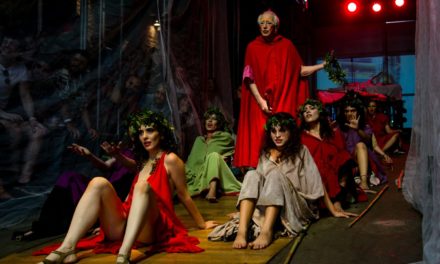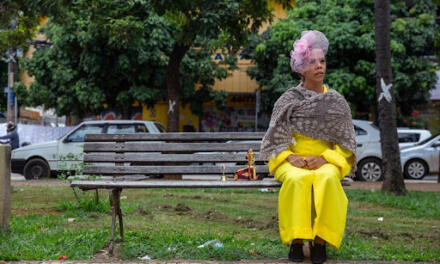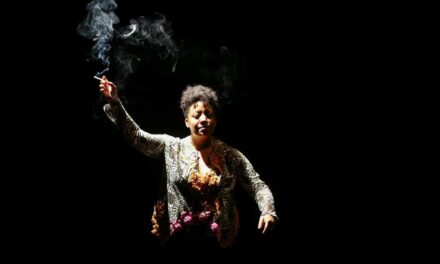“I have a horror of reality. That’s why I’m a fiction writer” – RF Lucchetti
Some writers achieve fame by publishing few books throughout their lives, as is the case with JD Salinger, who in addition to his sweeping novel The Catcher in the Rye has published only three more short stories books. Or Emily Brontë which has only a single published book, The Wuthering Heights, that resists time and is always in the bookstores among the best sellers. Other authors, however, have an extensive literary production and are rarely remembered by the large audience. It seems to be the case of the fictionist, draftsman, writer, and screenwriter of films, comics and photonovels from São Paulo, Rubens Francisco Lucchetti, or simply RF Lucchetti. He is considered the biggest name of pulp fiction in Brazil with a list of no less than 1547 books over a long and profitable career.
The 85-year-old author lives in Jardinópolis, a small town in the interior of the state of São Paulo. His home has a vast library with his works. He wrote about everything: from terror tales to crime stories and erotic tales, with funny titles like Os vampiros não fazem sexo (Vampires Do Not Have Sex), Confissões de uma morta (Confessions of a Dead Woman) and Fim de semana com a morte (A Weekend with Death). Lucchetti also wrote several screenplays, soap operas, and TV shows. Among his most well-known creations are the movies As sete vampiras (The Seven Vampires, 1986), directed by the filmmaker Ivan Cardoso, and his partnership with the filmmaker José Mojica Marins, Zé do Caixão (Coffin Joe). Alongside Mojica, he has written classics such as O estranho mundo de Zé do Caixão (The Strange World of Coffin Joe, 1968) and O despertar da besta (The Awakening of the Beast, 1969).
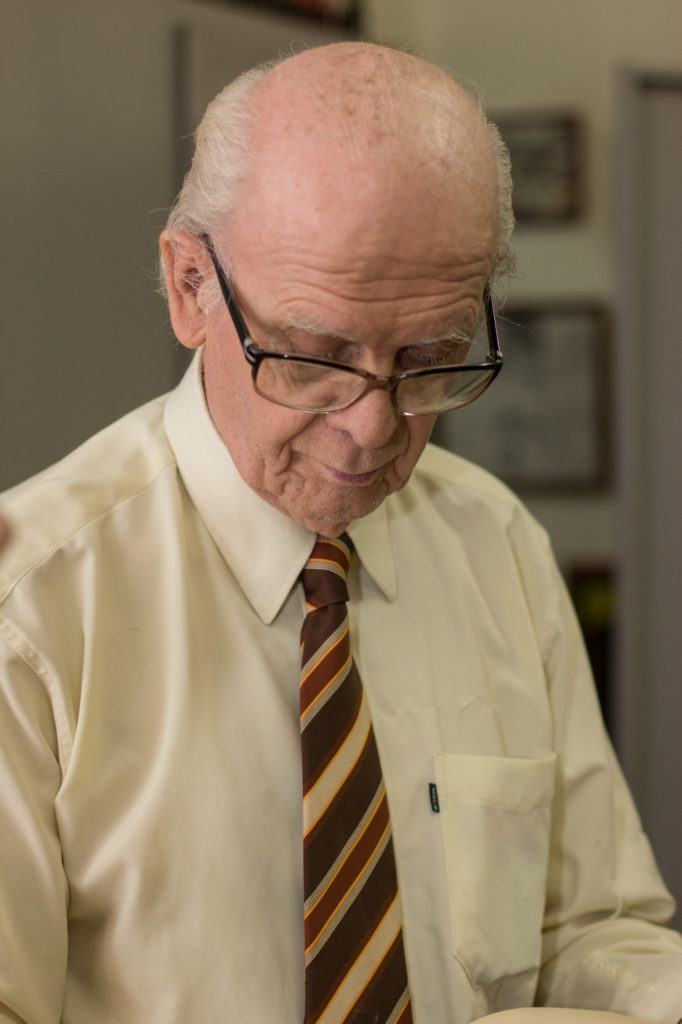
Rubens Francisco Lucchetti. Photo Credit Rafa Gnomo – Nerd Pride.
R.F. Lucchetti’s highest production took place in the 70s’ and 80s.’ To legitimize his work, he has written many of his under various pseudonyms commonly suggested by his publishers, who did not believe in a Latin name signing stories of mystery and horror. Mary Shelby (in reference to writer Mary Shelley), Vincent Lugosi (in allusion to the horror movie actors, Vincent Price and Bela Lugosi). Brian Stockler and Isadora Highsmith were some of the names used by Lucchetti. One of his books, Noite diabólica (Diabolic Night) published in 1963, is considered to be Brazil’s first written horror book.
Now RF Lucchetti is the newest honoree of the Vigor Mortis Theater Company in his latest project, A macabra biblioteca do Dr. Lucchetti (Dr. Lucchetti’s Grisly Library). The Company based in Curitiba directed by Paulo Biscaia Filho – contemplated with the Rumos Itaú Cultural (2015-2016), one of the main cultural programs of the country – brings to the public its latest project, thus beginning the celebrations of the 20 years of Vigor Mortis.
The play brings us the story of private detective John Clayton, hired for a dangerous case by the seductive Helen Zola, wife of the strange scientist Dr. Zola. Clayton accepts the case, despite warnings from his best friend, police reporter Vonetta, who has a gloomy past with Zola. The plot is driven by the search of the legendary Dr. Lucchetti’s library, a collection of books that holds secrets about everything that is supernatural. In the cast, Michele Rodrigues (Helen Zola), Ed Canedo (John Clayton), Kassandra Speltri (Vonetta), Kenni Rogers (Dr. Anton Zola) and Paulo Rosa (The Man in Hat). The staging throws us into the atmosphere of 50’s noir movies.
The Vigor Mortis Company most recent project is not restricted to the limits of the theater and delivers three others products, besides the play. Museu dos horrores (The Museum of Horrors) is a comic book based on a novel of the same name, sketched by the cartoonist José Aguiar, also from Curitiba. Ther is also the short film As noites diabólicas by Paula Clossidy (Diabolical Nights – https://vimeo.com/214594750), an adaptation of the RF Lucchetti’s short story. And they also produced a documentary with the same name of the play (https://vimeo.com/214319399), presenting a lengthy interview with the writer from São Paulo. The movies are available on line, and the comic book will be distributed during the play’s presentations.
A macabra biblioteca do Dr. Lucchetti (Dr. Lucchetti’s Grisly Library) premiered in Curitiba on April 21st and held season until the 30th at the Teatro da Cia do Palhaços. The second season will take place in São Paulo between May 4th and 14th, on the Cemitério de Automóveis Theater.
About Vigor Mortis Company
The theatrical company Vigor Mortis is based Curitiba, a city in the south of Brazil, since its formation in 1997, and has always been under the direction of Paulo Biscaia Filho. It is dedicated to exploring, researching and updating the aesthetic of the Grand Guignol Theater, the Parisian institution specialized in naturalistic horror play that worked uninterrupted for over 50 years and became a popular genre in the early twentieth century. Since its founding, Vigor Mortis has established itself as one of the most prolific and creative theatrical companies in Curitiba, integrating several artistic languages among such as theater, cinema, and comics. For over 20 years, the company has created over 30 productions with highlights for Morgue Story: cinema, baiacu and quadrinhos (Morgue Story: Movie, Blowfish and Comics, 2004), Graphic (2006), Nervo craniano zero (Cranial Nerve Zero, 2009), Manson Superstar (2009), Marlon Brando, whyskey, zumbis e outros apocalipses (Marlon Brando, Whiskey, Zombies and Others Apocalypses, 2013). In addition to the work in the theater, Vigor Mortis develops a prolific film work with more than a dozen short films, as well as their adaptations for Morgue Story (2009) and Nervo craniano zero (2012). The latter received the Best Film Award in Montevideo, Uruguay, and San Francisco, United States, as well as the Best Director Award at the New Orleans Horror Film Festival (USA).
This post was written by the author in their personal capacity.The opinions expressed in this article are the author’s own and do not reflect the view of The Theatre Times, their staff or collaborators.
This post was written by Raphael Cassou.
The views expressed here belong to the author and do not necessarily reflect our views and opinions.


